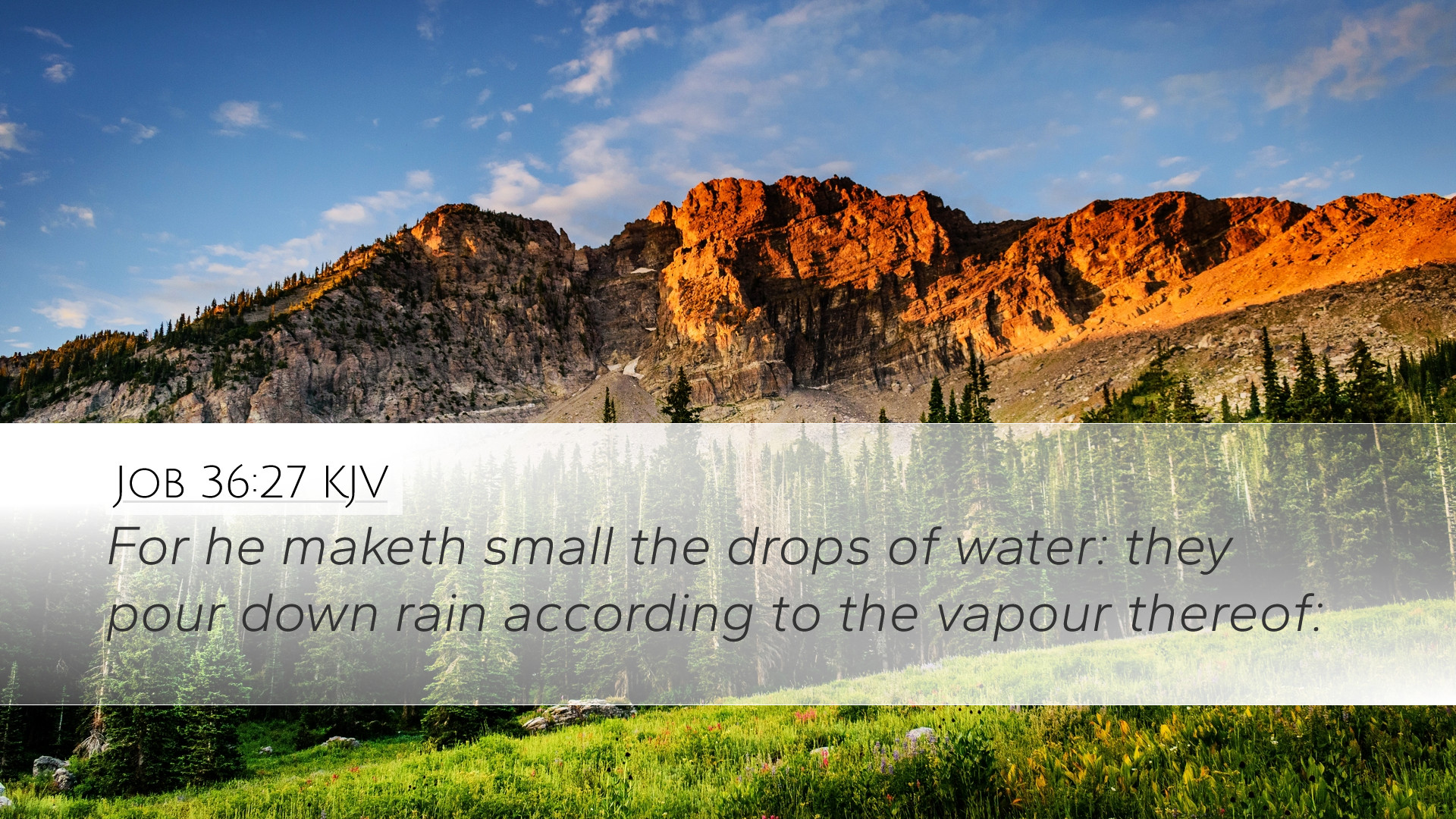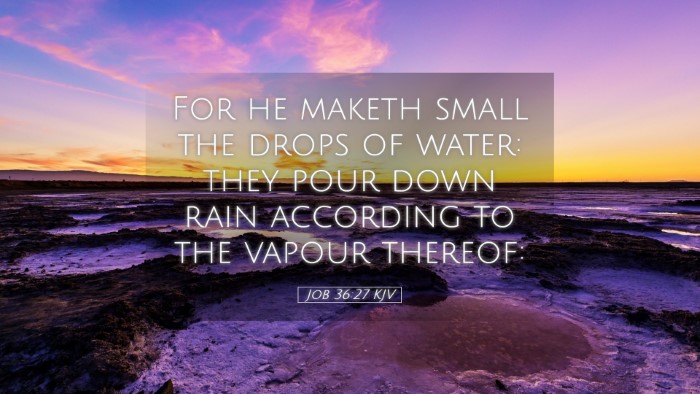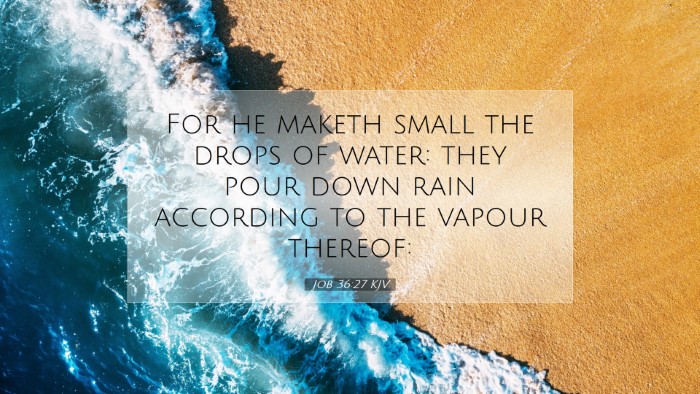Commentary on Job 36:27
Verse Text: "For he maketh small the drops of water: they pour down rain according to the vapour thereof."
Introduction
Job 36:27 stands as a profound reflection on God's sovereignty over nature and the workings of creation. In this verse, the character of God's power is depicted through the imagery of water and rain, illustrating His meticulous control over the natural world.
Commentary Insights
God's Sovereignty Displayed
Matthew Henry emphasizes that this passage highlights God’s omnipotence in managing the elements. The phrase "he maketh small the drops of water" suggests that God, in His wisdom, regulates even the smallest parts of creation, indicating His involvement in every aspect of life and the natural order.
Albert Barnes draws attention to the system of rain and vapor, indicating that Job's friends and Job himself did not fully grasp the complexities of how God operates in nature. Just as God controls the water cycle and the rain, so too does He govern the lives of individuals, bringing blessings or trials as He sees fit.
The Nature of God’s Provision
Adam Clarke suggests that the imagery in this verse reflects not only God’s power but His provision and care for creation. By pouring down rain "according to the vapour thereof," God demonstrates a measured and purposeful benevolence, showcasing that His actions are deliberate and significant for sustaining life on earth.
This concept emphasizes that God's engagements with nature mirror His engagements with humanity. Just as rain nourishes the earth, God's grace sustains the believer.
Theological Implications
The textual exploration in Job 36:27 invites theological reflection about the relationship between humanity and the Creator:
- The Creator-Creation Relationship: This verse affirms that everything in creation is subject to God's authority. He is not distant; rather, He is actively involved in the sustenance of life.
- The Nature of Divine Provision: The manner in which He regulates rain serves as a metaphor for how He provides for His people. Just as rain falls at an appointed time, so too do God’s provisions come when needed, reflecting His perfect timing.
- Trust in Divine Wisdom: Believers can learn to trust in God's divine wisdom and timing. Even amid difficulties, the understanding that God controls all elements can provide comfort and assurance.
Exposition of the Imagery
The metaphor of rain is not only practical but deeply symbolic in biblical literature. It often signifies blessing, fertility, and the restoration of life.
As Matthew Henry notes, God's capacity to regulate the rain symbolizes His providential care in nurturing His creation, reinforcing that no aspect of life escapes His oversight. Clarke elaborates that the cyclical nature of rain demonstrates a continuous pattern of grace that reflects God’s faithfulness to provision.
Conclusion
Job 36:27 serves as a powerful reminder of God's overarching authority and meticulous care over creation. For pastors, students, and theologians, this scripture continues to provoke thought about how God's process in the physical realm relates to His spiritual dealings with humanity.
The insights from Matthew Henry, Albert Barnes, and Adam Clarke encourage a deeper appreciation of divine sovereignty, inviting an understanding grounded in trust and reverence towards God who watches over us with the same precision and care with which He orchestrates the natural order.
Reflection Questions
- What does this passage teach us about trusting in God’s provision in our daily lives?
- How can we better understand God’s sovereignty in the context of our struggles?
- In what ways does recognizing God’s control over nature help us to approach our own lives with faith?


